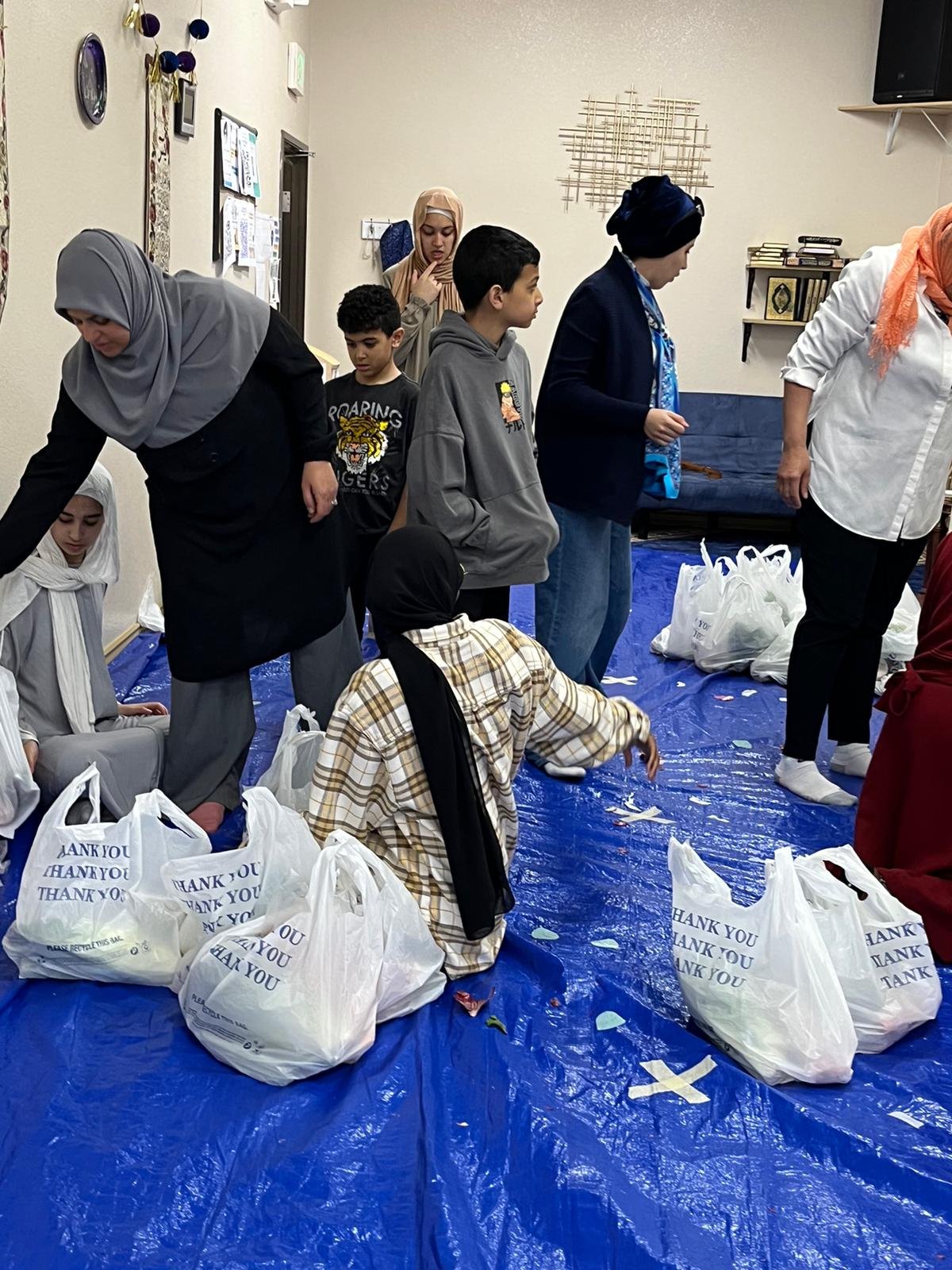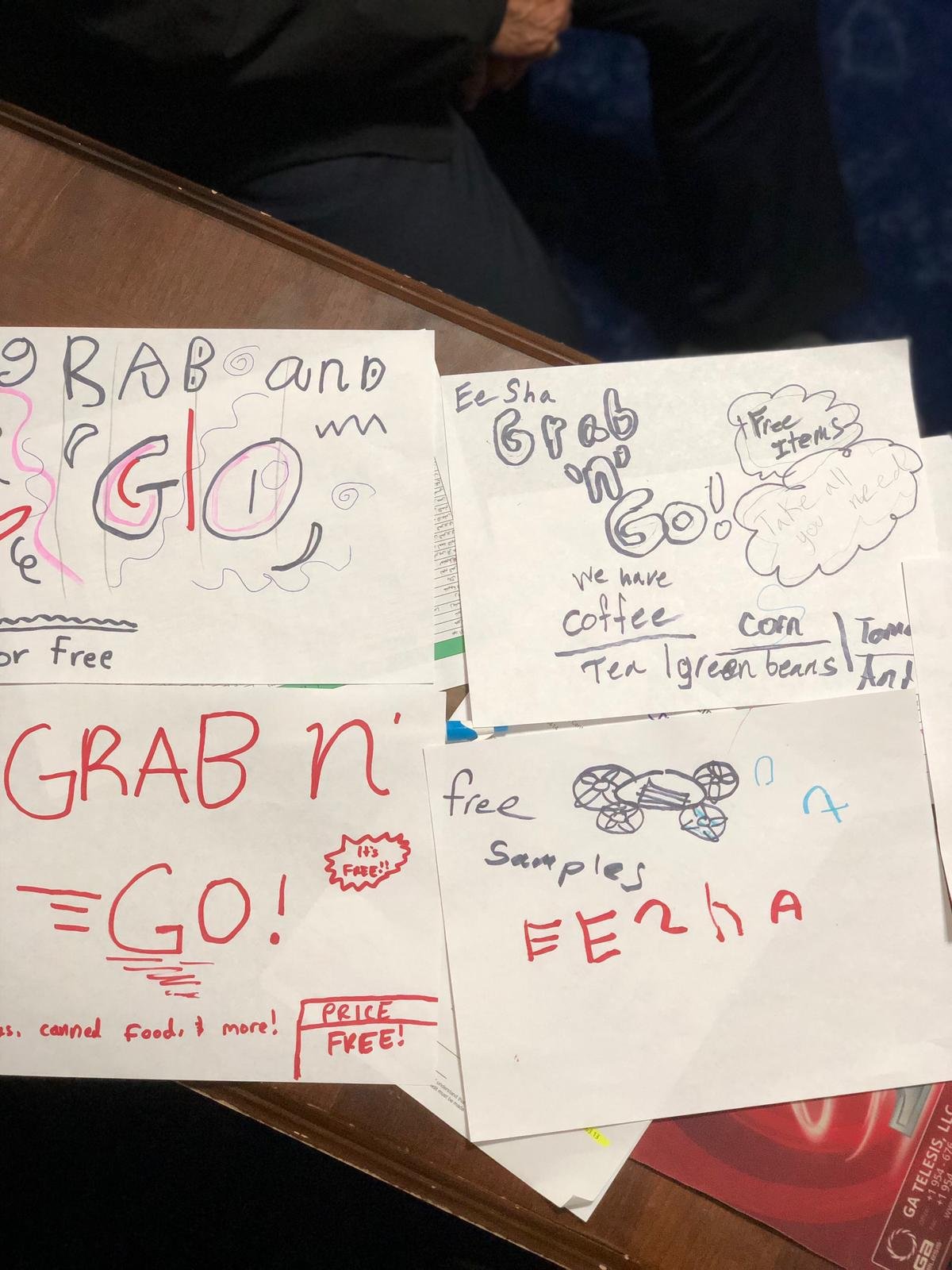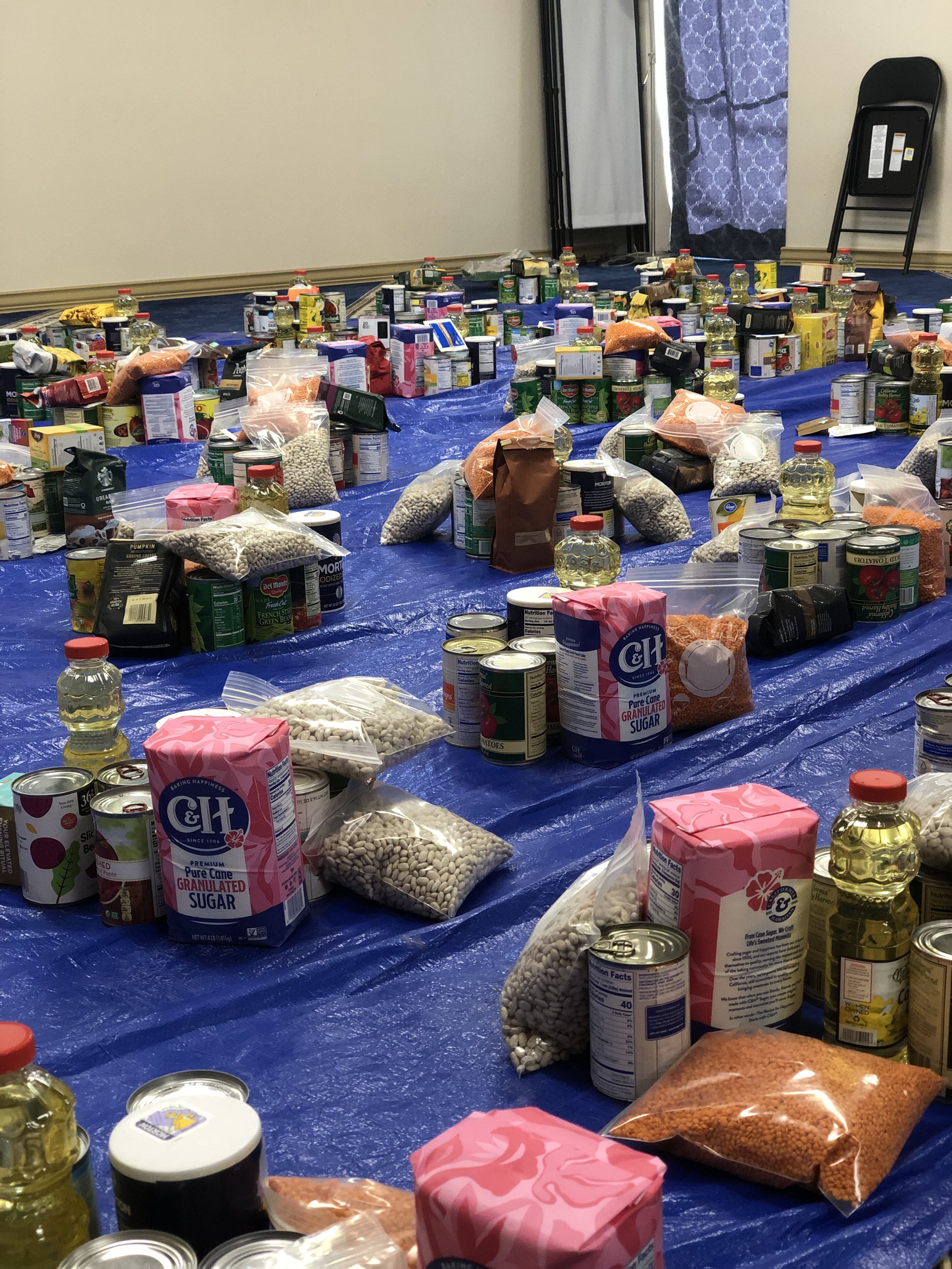Helping neighbors celebrate with culturally responsive foods
Story and Photos: Courtesy of Food Bank of the Rockies
The holy month of Ramadan, which started March 22, is considered one of the most joyous times of the year for the more than 70,000 Muslims in Denver.
During Ramadan, community members of the Islamic faith typically fast during daylight hours, beginning their day with Suhoor (morning meal) before the first prayer of the day and breaking their fast traditionally by eating dates before Iftar (evening meal), which is normally eaten with friends and family. Eid al-Fitr, meaning “Festival of Breaking the Fast,” is the important holiday that follows the month of Ramadan. It is a time for great feasts, the giving of gifts to children, and spending time with friends and family.



The celebration often includes a variety of traditional foods including baklava, stuffed dates, kanafeh, and many other foods. However, finding the ingredients and foods to make these dishes in Denver can be especially difficult if you are on a limited budget or if you’ve seen your SNAP benefits reduced.
Food Bank of the Rockies’ Culturally Responsive Food Initiative works to overcome access barriers to important ingredients and foods experienced by clients from diverse cultural backgrounds. The program collects demographic information and feedback on food preferences from clients, partners, and cultural community organizations to develop food lists specific to the different populations served by the Food Bank.
To ensure Denver's Muslim community is able to celebrate Ramadan with the types of food that are traditionally associated with it, Food Bank of the Rockies sources several items to make available to Hunger Relief Partners like the Downtown Denver Islamic Center. These foods included halal chicken drumsticks, dried dates, raisins, almonds, pistachios, honey, minced garlic, and more.
Throughout the year, in addition to sourcing specific items for holidays such as Ramadan, Food Bank of the Rockies operates 30 culturally responsive mobile pantries in Colorado and three in Wyoming and makes available as many culturally responsive food items as possible to Hunger Relief Partners.
"Nourishing our communities means more than just putting food on plates," said Ashley Newell, manager of the Culturally Responsive food program at Food Bank of the Rockies. "It means listening to our neighbors, respecting varying cultural values, and meeting those needs and desires to the best of our ability."
For more information about the program, visit https://www.foodbankrockies.org/about/programs/culturally-responsive-food-initiative/


